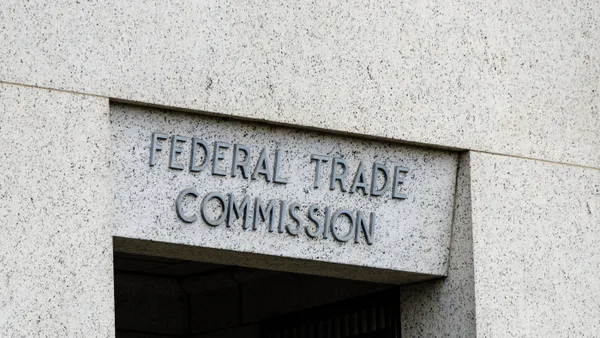Dive Brief:
- Nine out of 10 compliance executives forecast that the cost of compliance will surge as much as 30% during the next two years, yet only six out of 10 expect an increase in operational funding during the period, Accenture found in a survey.
- Similarly, 93% of respondents believe that advanced technologies such as artificial intelligence and cloud computing will streamline compliance, yet 37% said their companies invest too little in technology and 72% said their technology budget did not change during the past 12 months, Accenture said.
- “Compliance executives are facing a dual challenge of needing to invest in people, processes and tools while evolving in an ever-increasing, cost-pressure environment,” Accenture said, describing the global survey of 860 compliance leaders in 10 sectors. “The cost equation is a growing challenge for the compliance function.”
Dive Insight:
During the past two years CFOs and compliance executives have confronted several new risks of waste, fraud, litigation, reputational harm and regulatory penalty.
Money laundering, illicit digital payments and other wrongdoing pushed up financial crime compliance costs in the U.S. and Canada to $49.8 billion last year, a 58% increase compared with 2019, according to LexisNexis.
Ransomware attacks doubled in 2021 as the pandemic-induced shift to hybrid work opened up opportunities for cybercriminals.
Federal agencies including the Securities and Exchange Commission plan to require greater corporate disclosure and accountability on cybersecurity, sustainability and workforce demographics.
Also, trade and financial sanctions prompted by Russia’s invasion of Ukraine pose regulatory and reputational risks.
Safeguarding data privacy has posed the biggest challenge to compliance executives during the past two years, Accenture said, citing its survey. “Looking to 2023, respondents noted that they expect it to remain one of their top compliance challenges.”
The upshot: CFOs and their C-suite colleagues need to “rethink compliance in the face of mounting issues and risks, rapid regulatory change, unforeseen crisis and data complexity,” Accenture said.
Nine out of 10 survey respondents said they have shifted compliance operations to lower-cost locations, Accenture said, with 41% moving activities abroad. For example, nearly six out of 10 respondents (58%) have hired vendors to handle consumer requests on data privacy.
Still, “the push to reduce costs may expose companies to increased risks,” Accenture said. Compliance “leaders see their role as carefully weighing and balancing this increased risk exposure to [achieve] improved outcomes while keeping costs down.”
Companies hamstring many compliance executives, with 36% of respondents saying they lack “organizational stature,” Accenture said. Almost half (48%) of executives among utilities and 44% of their counterparts in software and platform companies said their weak clout poses “a major hurdle for strengthening the compliance function.”












